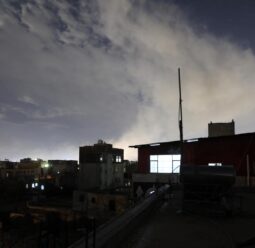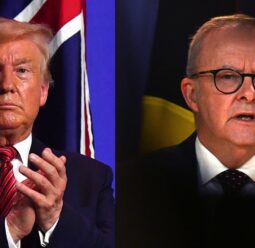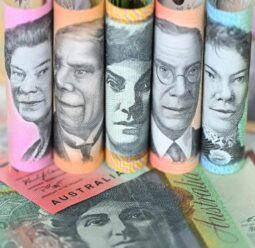‘Optimism’ in budget as Australia seen turning a corner
The cost of living will be centre stage in the government's budget as many continue to do it tough, but a cabinet minister says there is reason to have hope.
The cost of living will be centre stage in the government's budget as many continue to do it tough, but a cabinet minister says there is reason to have hope.
Tariffs on vehicles, aluminium and pharmaceuticals will be announced in the near future, US President Donald Trump says.
All taxpayers will get two rounds of cuts but only starting from July 2026, as Treasurer Jim Chalmers makes the case for a second Labor term.
US President Donald Trump has said he may give "a lot of countries" breaks on tariffs, but has provided no further details on which ones are included.
Retail chain Jeanswest has collapsed after more than five decades in business, threatening hundreds of jobs with more than 90 stores likely to close.
Markets are reacting to President Donald Trump's announcement of new import taxes of 25 per cent on cars and car parts coming into the US.
A controversial GST carve-up will go ahead as a federal minister says his government will not overrule an independent body's recommended funding for states.
Fears the US would continue to draw away from the West were unfounded at the G7 summit, as it joined allies in warning Russia to accept the proposed ceasefire.

The US has launched a series of airstrikes on Yemen's Iran-aligned Houthis after they resumed attacks on ships passing through the Red Sea and Arabian Sea.
A First Nations-owned business is one of Australia's most celebrated producers of organic spirits, after a "rollercoaster" journey on the road to success.

Australia has been warned against relying on Donald Trump as it continues to try to negotiate for an exemption from the US president's trade tariffs.

The full impact of the destruction wrought by Cyclone Alfred is being assessed, with grocery and construction prices under pressure.
Treasurer Jim Chalmers has hosed down speculation of a major upgrade to forecast revenue and warned of "few surprises" on budget night.
One state has gone backwards in the latest recommended GST revenue carve-up with billions of dollars flowing to another as its population booms.
Australia's economic outlook is looking rosier as inflation continues to fall and following the first decline in interest rates in more than four years.
As the economy looks set to be front and centre in the election campaign, one of the coalition's leading inflation claims has been called "a joke" by experts.
President Donald Trump has increased tariffs on all steel and aluminium imports to 25 per cent, prompting criticism from allies retaliation from the EU.
AustralianSuper is the latest major super fund to face legal action for allegedly failing to pay out benefits to families of dead members in a timely manner.
Canada and Europe have been quick to retaliate after President Donald Trump's metals tariffs came into effect.
The Treasury Department reports the US deficit in February rose $US11 billion from the same month in 2024.
There are signs the housing market in normalising five years after the COVID-19 pandemic sent home values soaring across Australia.
Australians raiding their super balances for housing could boost home ownership but may result in a jump in prices, economists say.
Stocks have dropped again after Donald Trump threatened a 200 per cent wine tariff on the EU if it doesn't relent on plans to lift taxes on US whiskey.
Former central banker Mark Carney has launched a scathing attack on Donald Trump after winning the race to succeed Justin Trudeau as Canada's prime minister.
Thousands of insurance claims have been made during ex-tropical cyclone Alfred's assault but its still early to estimate the total damage bill.
Promising housing data and a return to growth in real household incomes augur well for the Australian economy in 2025.
Australia's wealth divide reached its worst level in more than two decades, after excluding a temporary narrowing during the COVID-19 pandemic.
Donald Trump has postponed tariffs on many imports from Mexico and some from Canada for a month amid widespread fears of the economic fallout from a trade war.
Australia's bottom line will be $11 billion better off, if the government releases a budget before the election, a leading economist predicts.
President Donald Trump is granting a one-month exemption on his stiff new tariffs on imports from Mexico and Canada for US automakers.
President Donald Trump has launched a trade war against the US's three biggest trading partners, drawing immediate retaliation from Mexico, Canada and China.